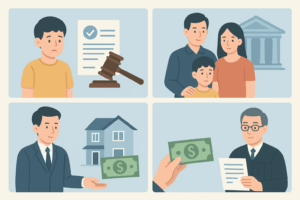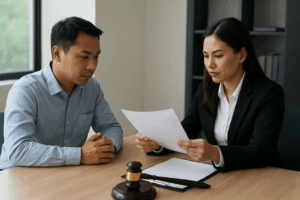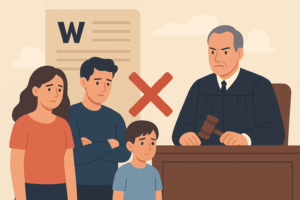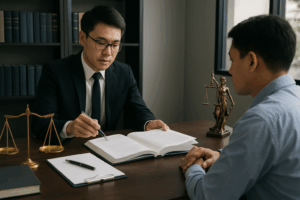Power of Attorney in Thailand: A Detailed Overview
In the complex web of legal documentation, a Power of Attorney (PoA) stands as a fundamental pillar, offering a person the authority to make decisions on another’s behalf. While the concept of a PoA is global, its application and nuances in Thailand have their unique characteristics that are essential to grasp, especially for those looking to engage in personal, business, or property transactions in the country.
Nature and Types of Power of Attorney
At its core, a PoA is a legal instrument that delegates authority from one individual, the principal, to another, the attorney or agent. This authority could encompass a wide range of actions, from financial dealings and property transactions to business operations and even specific personal matters like obtaining data from government entities.
1. Specific vs. General Power of Attorney :
In Thailand, two primary types of Power of Attorney are recognized:
– Specific PoA : Designed for particular transactions or actions. For instance, if someone wishes to sell their property, they might use a specific PoA to grant someone else the power to complete the sale on their behalf.
– General PoA : A more encompassing document that provides the attorney with broader powers to act across various situations. It might be employed to allow an agent to handle multiple facets of a business, from operational decisions to legal proceedings.
Key Aspects of the Thai Power of Attorney System
2. Translation and Notarization:
For PoAs executed abroad but intended for use within Thailand, translation into Thai is mandatory. To further validate the document, it should be authenticated, either by a notary public or through a Thai embassy or consulate, ensuring its acceptance in Thai proceedings.
3. Land Transactions and the Land Department :
Land transactions in Thailand come with their unique set of challenges. For these, the Land Department provides a recommended PoA format, ensuring a smoother bureaucratic process. Utilizing this format can prevent issues arising from document discrepancies.
4. Limited Scope and Interpretation :
One distinct feature of Thai PoAs is the emphasis on the limitation of powers. Any ambiguities in the document’s wording will typically be interpreted in a way that restricts the attorney’s authority. This approach aims to protect the principal and ensure the PoA isn’t misused.
5. Revocation of Power of Attorney :
The authority granted by a PoA isn’t irrevocable. The principal can withdraw it. However, to avoid confusion or misuse, it’s essential to inform all concerned entities (like banks or business partners) of its revocation.
6. Implications of Death or Incapacity :
In many jurisdictions, certain durable PoAs persist even after the principal’s incapacity. However, in Thailand, the death or mental incapacitation of the grantor immediately nullifies the PoA.
7. Witnessing the Power of Attorney :
Executing a PoA in Thailand necessitates witnesses. Importantly, these witnesses should have no vested interest in the PoA’s subject to maintain its integrity and legitimacy.
8. Power of Attorney in Business :
For foreigners conducting business in Thailand, PoAs can be invaluable. They can delegate specific operations to local representatives, thus ensuring seamless business continuity even in their absence.
9. Consent in Cases Involving Minors :
If a minor is a part of a transaction that requires a PoA, like being the principal, Thai law necessitates the consent of legal guardians or parents.
10. Local Practices and Nuances :
As with many legal procedures, local practices can influence the PoA process. Different provinces might have specific practices or requirements. Being cognizant of these is crucial to prevent procedural hiccups.
Conclusion
Engaging in transactions in Thailand, whether they’re personal or business-related, requires a clear understanding of the PoA system. While the intricacies might seem daunting initially, with the right guidance and comprehension, one can navigate this aspect of Thai law confidently and efficiently. As always, when venturing into such critical legal territories, consulting with a local legal expert is not just beneficial but often essential.
Contact : Siam Center Law Group by calling +66(0) 2 648 5041, +66(0) 2 648 5042





